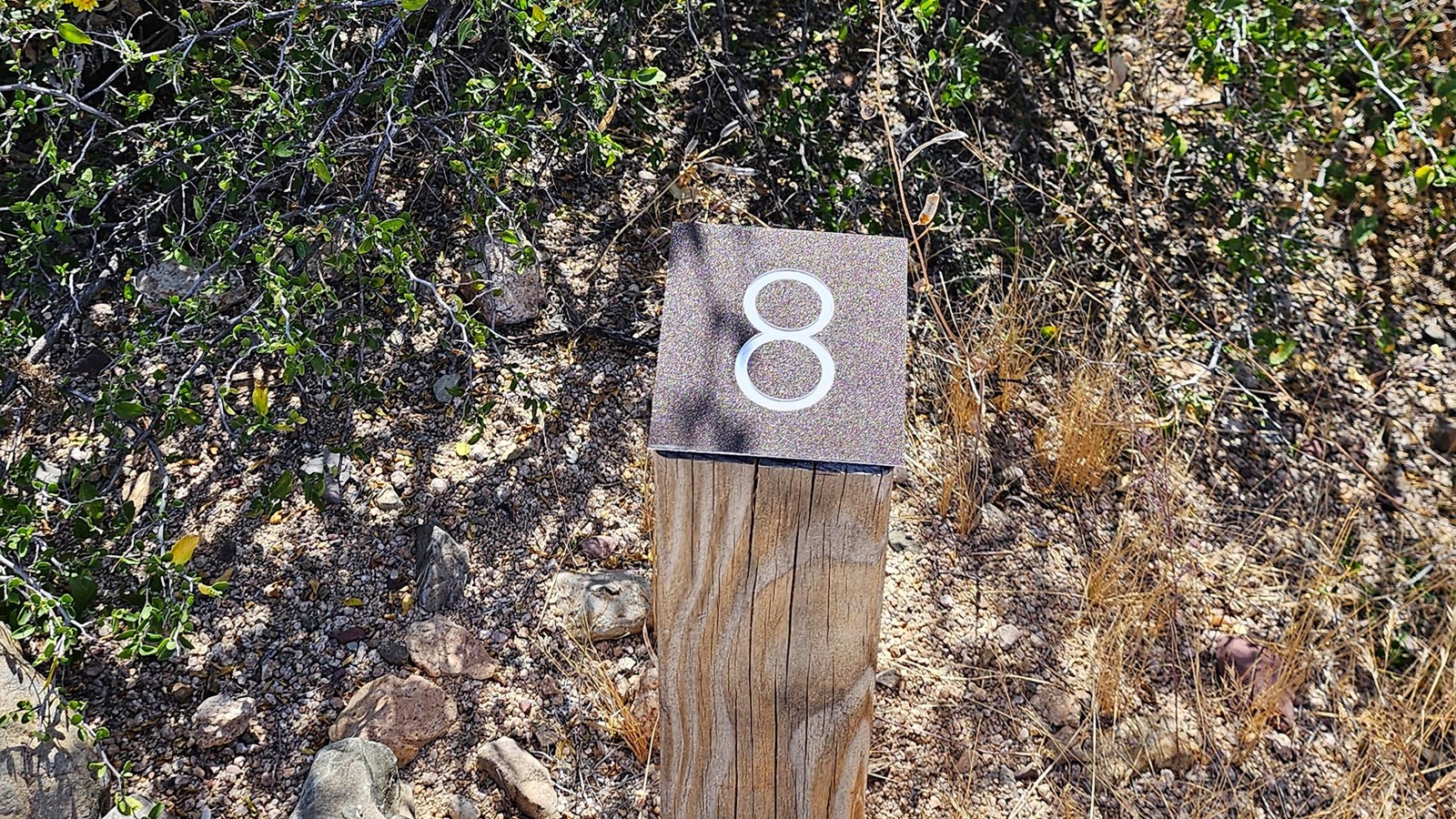Last updated: May 21, 2024
Place
Signs of Life, Self-Guided Tour Stop 8

NPS
Quick Facts
Location:
32.25478883962488, -111.19735273078791
Significance:
Tour stop
Designation:
NPS
Stop 8: Brush Cover
Dense shrubbery such as the desert hackberry, wolfberry, and canyon ragweed growing in this area provide cover, as well as food for many forms of animal life. Small mammals and reptiles will hide in the shade of these shrubs, while birds will perch in the branches by day and roost there at night.
You may find a small, brown, and orange butterfly guarding a desert hackberry bush; this is an Empress Leilia, also called the desert hackberry butterfly. Its caterpillars (larvae) feed on the leaves of hackberries, and males will perch on a bush or on the ground nearby waiting for female butterflies to come along. The male will defend “his” hackberry from other males, assuring a better chance at being the one who mates with any female visiting that plant.
Dense shrubbery such as the desert hackberry, wolfberry, and canyon ragweed growing in this area provide cover, as well as food for many forms of animal life. Small mammals and reptiles will hide in the shade of these shrubs, while birds will perch in the branches by day and roost there at night.
You may find a small, brown, and orange butterfly guarding a desert hackberry bush; this is an Empress Leilia, also called the desert hackberry butterfly. Its caterpillars (larvae) feed on the leaves of hackberries, and males will perch on a bush or on the ground nearby waiting for female butterflies to come along. The male will defend “his” hackberry from other males, assuring a better chance at being the one who mates with any female visiting that plant.
